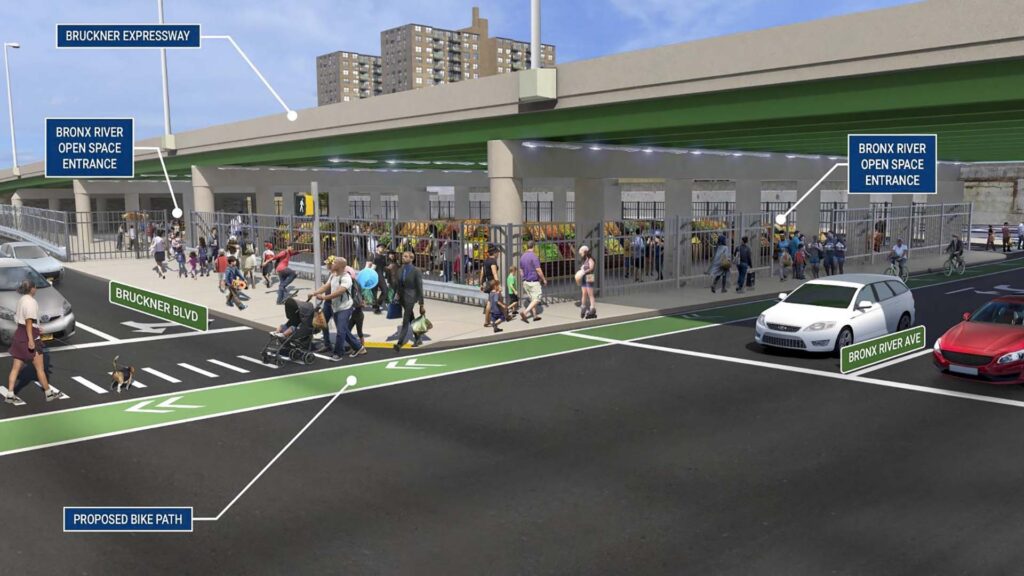On time, on budget: begin before the beginning for successful transit projects
How do you expand a transit system in New York City, one of the most expensive cities in the world, without breaking the bank? The answers lie in three elements: preplanning, coordination and preparation. These three inextricably linked factors can help contain costs and maintain your timeline, enabling you to make the most of your investment. Here’s how these factors advance the successful, cost-effective completion of transit projects.
Time is money
There is no getting around it, construction in dense urban environments is, by its very nature, complex and expensive. Transit projects are multifaceted, multilayered efforts that reach across legions of engineering disciplines and, frequently, competing city agency jurisdictions. But these challenges do not necessarily have to lead to construction delays and cost overruns.
Thoughtful and thorough upfront planning enables the project team to examine the project scope and details, identify potential issues, and eliminate or reduce potential obstacles that could lead to lengthy delays before the construction meter starts running.
Using this upfront time to their best advantage, program managers can build out cost-effective solutions for complex issues that may not be possible or even available once construction has started. Utility relocations in dense urban areas, for example, are often main drivers of project delays that result in cost overruns. Building in a window of time during the preplanning phase for early utility identification and relocation is an excellent strategy for eliminating potential setbacks and keeping the budget on track.
Forward focus
When working with city agencies, forward-looking coordination is key to delivering successful outcomes. Upfront coordination, especially a formal program initiation process, is increasingly recognized as a vital element of overall program success. Initiation ensures alignment of roles and expectations, establishes key processes and allows the project team to quickly mobilize.
Transit projects typically have overlapping aspects that involve varied city agencies or require work to be situated on different city agency properties. Understanding the layers of city agency responsibilities and expectations to gain consensus across these entities can be time consuming and challenging — but it is an essential, not to be overlooked step. Ineffective coordination costs transit agencies time and money. An effective, experienced program manager anticipates overlapping project jurisdictions among agencies and puts into motion a plan for easements, schedules and other concerns to be negotiated in advance.
On the $1.7 billion Hunts Point Interstate Access Improvement design-build project in the South Bronx, our team coordinated with and between city and state agencies, such as the New York State Department of Transportation, the New York City Department of Transportation, the Metropolitan Transportation Authority/New York City Subways, and the New York City Department of Parks and Recreation. This project — one of the largest in the history of the New York State Department of Transportation — will provide direct interstate access to more than 20,000 vehicles, and it is on budget and on schedule to open in 2025.
Preparation is easier when a trusted advisor leads the way
Land acquisition and right-of-way issues can result in disputes and confrontations among agencies, costing time and money. Bringing onboard a program manager who not only understands the disparate needs of and concerns around these agencies’ operations but is also experienced in developing satisfactory solutions for all is the best way to ensure your critical programs and projects move forward.
We have worked with virtually every New York City and State agency. We understand how these different agencies operate, and we know what it takes to coordinate with and negotiate between them. Our professionals are, in fact, embedded with such agencies as the New York City Housing Authority (NYCHA) and the New York City Schools Construction Authority (NYCSCA), acting as program manager for their major projects and providing key services such as property assessments. Over the course of this engagement, we have earned the role of trusted advisor.
As primary consultant for the NYCSCA, we demonstrate preparation as a matter of course. In just the past three years, we developed evacuation plans and drop off lanes analysis for 50 schools, advancing vital services across New York City. This level of familiarity and confidence uniquely positions our team to accelerate solutions that can mitigate potential obstacles while negotiating issues so that construction progresses without delays.
Completing projects that deliver a better world
Expanding transit in dense urban environments like New York City poses unique challenges. Preplanning, coordination and preparation before construction enables transit agencies to deliver these programs and projects on time and on budget—forging new community connections that advance mobility and transportation alternatives throughout the region.







